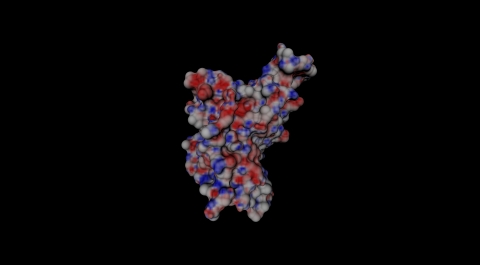MOSCOW, HUNAN, China, SHANGHAI & XIAMEN, China--(BUSINESS WIRE)--The Hunan University, Shanghai Jiao Tong University and Xiamen University have joined an international science group named The Good Hope Net (https://thegoodhope.net/) – from Russia, Finland, Italy and Canada – which got a high priority access to Russian RSC Tornado supercomputer for studying methods to fight against the COVID-19 coronavirus infection.
The multi-national research team uses a recently upgraded cluster system based on 2nd Generation Intel® Xeon® Scalable processors which has been deployed by RSC Group, the leading Russian solution provider for high-performance computing.
The Good Hope Net project aims to develop medicine for diagnostics and therapy against the coronavirus contagious disease that became the cause of global pandemic. Finding treatments to prevent and mitigate negative impact of COVID-19 is the highest priority in the worldwide scientific community now. Current studies use the latest advances in experimental physics, chemistry, and biology to investigate the life cycle of the virus. Sophisticated simulation methods requires supercomputing power to study all details of interaction between the Spike-protein on coronavirus surface and the human protein ACE2 which is known to be the entry point for SARS and SARS-2 coronaviruses. It will help to complete all research stages within a limited amount of time.
“Rapid global spread of COVID-19 coronavirus infection pandemic has shown that there are no clear global emergency response plans against threats to humankind caused by new viruses. One of the obvious shortcomings is the lack of technologies for quick development of medicines for diagnostics and therapy. We all have different competences, knowledge, skills and resources. Our geographically distributed team includes virologists, biologists, chemists, mathematicians and physical scientists. The international cooperation is extremely important to achieve quick progress and rapidly react to the ever-changing situation with global coronavirus pandemic. We hope that our research will actually help to fight spread of such infections,” – explains Anna Kichkailo, Head of Laboratory for Digital Controlled Drugs and Theranostics at the Krasnoyarsk Federal Science Center of Russian Academy of Sciences.
The international team consists of:
- Laboratory for Digital Controlled Drugs and Theranostics and Laboratory of Physics of Magnetic Phenomena, Kirensky Institute of Physics at the Federal Science Center, Siberian Branch of Russian Academy of Sciences (Krasnoyarsk, Russia),
- Laboratory for Biomolecular and Medical Technology, V.F. Voyno-Yasenetsky Krasnoyarsk State Medical University (Krasnoyarsk, Russia) – project coordinator,
- Laboratory of Chemical Cybernetics, Department of Chemistry at Lomonosov Moscow State University (Moscow, Russia),
- Laboratory for Computer Simulation of Biomolecular Systems and Nanomaterials at N. M. Emanuel Institute of Biochemical Physics Institute, Russian Academy of Sciences (IBCP RAS, Moscow, Russia),
- Organic Synthesis Laboratory, Institute of Chemical Biology and Fundamental Medical Science, Siberian Branch of the Russian Academy of Sciences (ICBFM SB RAS, Novosibirsk, Russia),
- The Molecular Science and Biomedicine Laboratory, Hunan University (China),
- School of Medicine, Institute of Molecular Medicine, Shanghai Jiao Tong University (China),
- Department of Chemical Biology, College of Chemistry and Chemical Engineering, Xiamen University, Xiamen, Fujian (China),
- The Bioanalytical and Molecular Interaction Laboratory, Department of Chemistry and Biomolecular Sciences, University of Ottawa (Canada),
- Institute for Experimental Endocrinology and Oncology (IEOS), part of National Research Council (CNR), Naples (Italy),
- Department of Molecular Medicine and Medical Biotechnologies, Department of Pharmacy, Federico II University of Naples (Italy),
- Nanoscience Center and Department of Chemistry, University of Jyväskylä, Jyväskylä (Finland).






